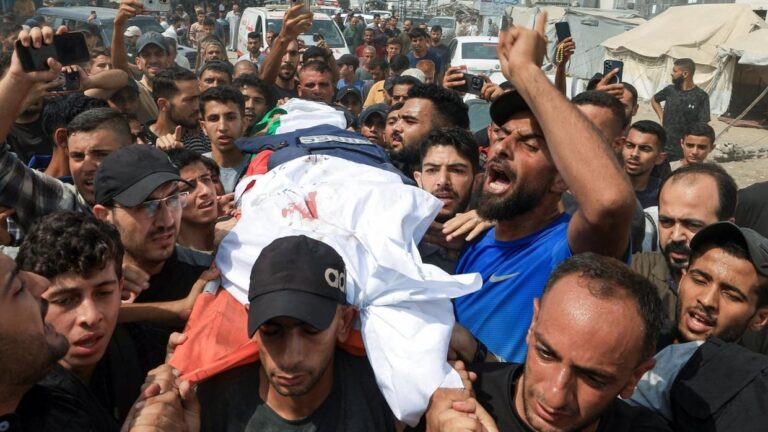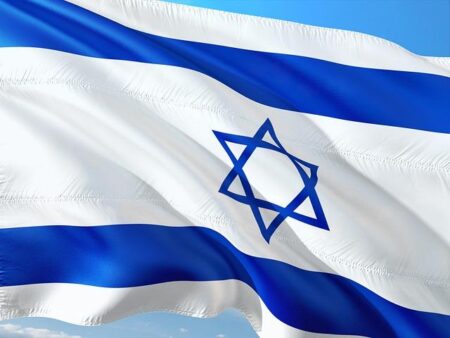In a rare display of public apprehension, Italy’s Prime Minister Giorgia Meloni has voiced concern over the escalating crisis in Gaza, amid rising tensions in the region. As the conflict intensifies, opposition parties in Rome are urging the government to take decisive and concrete action to halt Israeli Prime Minister Benjamin Netanyahu’s military campaign. The calls come amid mounting pressure on Italy to balance diplomatic relations with commitments to humanitarian principles, placing Meloni’s administration at a pivotal crossroads in its foreign policy stance.
Italy’s Meloni Expresses Deep Concern Over Gaza Crisis Amid Rising Regional Tensions
Italian Prime Minister Giorgia Meloni has publicly articulated her growing apprehension regarding the escalating violence in Gaza, highlighting the urgent need for restraint amid a tense regional backdrop. In a statement delivered from Rome, Meloni stressed the importance of protecting civilian lives and called for renewed diplomatic efforts to prevent further deterioration. The Italian leader’s remarks come as international pressure intensifies on all parties to de-escalate the conflict, with concerns mounting over potential spillover effects in neighboring countries.
Meanwhile, Italy’s opposition parties have voiced frustration over what they describe as inadequate government response. They are urging Prime Minister Meloni to adopt a firmer stance against Israeli Prime Minister Benjamin Netanyahu’s policies, advocating for concrete measures that could lead to an immediate ceasefire. In a recent parliamentary debate, key opposition figures outlined the following priorities:
- Humanitarian aid: Rapid deployment of medical and food supplies to Gaza.
- Diplomatic pressure: Increased engagement with EU partners to broker peace.
- Parliamentary oversight: Regular reporting on Italy’s diplomatic and humanitarian efforts in the crisis.
| Stakeholder | Position | Proposed Action |
|---|---|---|
| PM Giorgia Meloni | Cautious concern | Calls for restraint and diplomacy |
| Opposition Leaders | Demanding firmer action | Push for ceasefire and aid |
| European Union | Facilitator | Encouraging dialogue and support |
Opposition Demands Italy Take a Firm Stand Against Netanyahu’s Policies to Protect Palestinian Civilians
In a growing display of discontent, opposition parties in Italy are pressing the government to abandon its cautious diplomatic language and adopt a resolute stance against the current policies enacted by Israeli Prime Minister Benjamin Netanyahu. Critics argue that Italy must move beyond mere expressions of concern to actively engage in international efforts aimed at safeguarding Palestinian civilians amid escalating violence in Gaza. The opposition underscores the urgent need for concrete measures, including diplomatic pressure, sanctions, and humanitarian support, to prevent further civilian casualties and uphold international law.
Key demands from opposition leaders include:
- Immediate suspension of arms exports to Israel
- Strong condemnation of military actions causing civilian harm
- Increased humanitarian aid for Gaza’s vulnerable populations
- Active participation in multilateral peace negotiations
Despite Prime Minister Giorgia Meloni’s recent statements expressing “concern” for the humanitarian situation in Gaza, opposition voices label such remarks as insufficient and call on Rome to take definitive steps. This mounting pressure reflects a broader debate within Italy over the balance between maintaining strategic alliances and advocating for human rights and international justice. The opposition’s resolve signals a potential shift in Italy’s foreign policy, aiming to put the protection of civilians at the forefront of its diplomatic agenda.
| Action | Opposition’s Position | Government’s Current Approach |
|---|---|---|
| Arms Export | Halt immediately | Continued, with oversight |
| Diplomatic Response | Strong condemnation | Expressions of concern |
| Humanitarian Aid | Increase and expedite | Limited support |
| Peace Negotiations | Active participation | Observational role |
Calls for Concrete Diplomatic and Humanitarian Actions Intensify as Rome Faces Growing Pressure
As tensions escalate in Gaza, Italian political circles are intensifying demands for Rome to adopt a more proactive stance. Prime Minister Giorgia Meloni has publicly expressed her “concern” over the humanitarian crisis, yet opposition parties argue that expressions of worry are no longer sufficient. Calls for concrete diplomatic initiatives and urgent humanitarian support are growing louder, emphasizing the need for Italy to leverage its influence within the European Union and international bodies to pressure Israeli Prime Minister Benjamin Netanyahu. Critics highlight the urgency of halting military actions that have devastated civilian areas and exacerbated suffering among the Palestinian population.
Meanwhile, grassroots campaigns and human rights organizations in Italy are mobilizing to demand clear, actionable policies. Key proposals gaining traction include:
- Immediate humanitarian corridors to deliver aid and medical supplies
- Diplomatic mediation efforts aimed at ceasefire agreements
- Sanctions and conditional cooperation tied to respect for international law
To underline the political urgency, the opposition coalition has presented a table illustrating recent international resolutions and Italy’s voting record, spotlighting gaps that could be addressed through assertive diplomacy:
| Resolution | Date | Italy’s Position | Outcome |
|---|---|---|---|
| UN Ceasefire Call | March 2024 | Abstained | Not adopted |
| Humanitarian Aid Funding | April 2024 | Supported | Approved |
| Investigation of War Crimes | May 2024 | Opposed | Rejected |
Concluding Remarks
As the situation in Gaza continues to escalate, Italy finds itself navigating a complex diplomatic landscape. While Prime Minister Giorgia Meloni has publicly voiced concern over the humanitarian crisis, opposition parties are pressing for more definitive measures to influence Israeli policy and halt the violence. How Rome balances its diplomatic stance with calls for concrete action remains a focal point in Italy’s ongoing engagement with the conflict. The coming days will be crucial in determining whether Italy moves beyond expressions of concern to concrete initiatives aimed at fostering peace and stability in the region.




